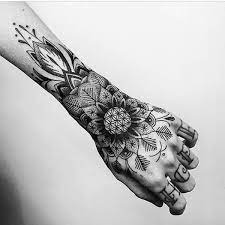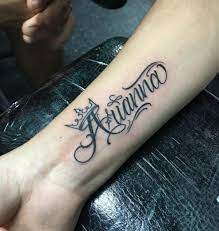
If your new Tattoos are itching, you need to remember a few key points. Itching is completely normal and is an indicator that healing has begun successfully. However, itching can also indicate infection or allergies; to protect against this risk, ensure the area is regularly washed with soap and water and avoid using products with petroleum or mineral oil-containing ointments.
It’s Normal
Minor itching can often be part of the healing process. If it persists or intensifies over time or is accompanied by symptoms like redness, swelling, and discharge, then an infection could be to blame; visiting your physician or tattoo shop for medical advice would be wise.
Keep your tattoo clean to prevent itching with specific products from pharmacies or online explicitly made for tattoos. In addition, washing it regularly with mild soap and warm water should keep it from becoming overly dry.
Scratching can cause infections or scarring of your tattoo, so try not to score. Instead, distract yourself from itching by taking a shower, walking, chewing bubblegum, or anything else you enjoy doing. If scratching is unavoidable, use soft fingernails with gentle taps on the skin; this should relieve itching and help heal your tattoo more quickly.
It’s a Sign of Healing
An itchy tattoo is an indication that your skin is healing properly. When needles penetrate your skin to apply ink, trauma triggers the healing process, which rids itself of excess cells while new ones form. Extra skin cells shed off during this process, and new one’s condition. An effective skin barrier must exist to support their formation – thus, the itchiness.
Therefore, you must refrain from scratching. Scratching can cause your scabs to peel too soon, leading to faded or damaged tattoos. Instead, try patting or tapping over the affected area.
Itching could also result from an allergic reaction to the ink or pigment used to create your tattoo, though usually, only mild symptoms will surface and soon go away on their own. If severe reactions develop, contact your tattoo artist, as they may recommend an alternate type of ink/pigment that won’t trigger an allergic response in you.
It’s a Sign of an Allergy
Tattoo healing often causes itching, which doesn’t present any serious problems. However, excessive scratching could indicate allergies or skin conditions that require attention, so any significant itching should be addressed immediately.
If your tattoo itches in addition to other symptoms such as fever, chills, or dark spots on the skin, you must contact a doctor as soon as possible, as these could be signs of an allergic reaction that requires immediate medical intervention.
Itching can also be an indicator of preexisting skin conditions such as psoriasis or eczema, as well as medications like antihistamines or steroids, so if you’re uncertain as to the source, consulting a dermatologist is recommended as they can prescribe topical creams or lotions which will soothe your skin as well as give advice for keeping new Tattoos from itching – try using hypoallergenic, fragrance-free lotion or cocoa butter on them to keep itchy skin at bay!
It’s a Sign of an Infection
Tattoos are itchiest when first applied, and scratching could damage the ink. If itching persists for several days, see your physician and prescribe some antibiotics.
Maintain a clean area around the tattoo by regularly using mild soap and warm water, especially after picking it, removing scabs, or picking at skin issues. Be sure to moisturize the tattoo using an aftercare cream that won’t irritate it, then cover it up with loose clothing to reduce rubbing or chafing.
Tattoos that itch could be due to psoriasis that has flared up after injury or infection. Cold temperatures and dry skin are also triggers; for maximum effectiveness, it is wise to moisturize frequently and use sunscreen protection when heading outdoors.

